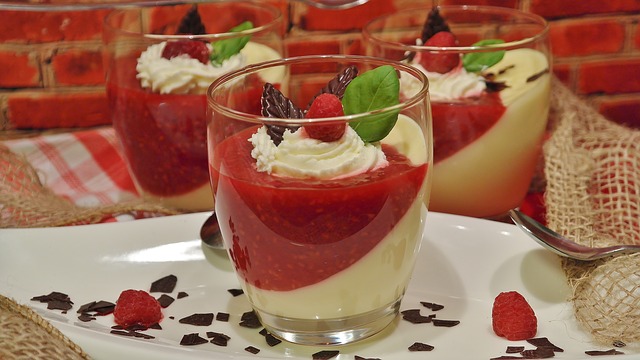The Proof Is in the Pudding
 Pudding, or any other food, may look good. It may smell good. Other people may say it tastes good. However, the proof of the pudding is in the eating.
Pudding, or any other food, may look good. It may smell good. Other people may say it tastes good. However, the proof of the pudding is in the eating.
The proof is in the pudding comes from the above longer and older expression, according to The Phrase Finder.
We know anything is good when it works as it should.
Does it fulfill its purpose? To find out, we:
- Taste food
- Turn on a computer
- Drive a car
We test it. If it works, we use it. If it does not work, we get something else.
The proof is in the pudding applies to our work as well.
We don’t know if we have succeeded until we check the final results. Then we know if what we did worked as it should.
We may think we have failed when time will show we succeeded.
- Our pudding may not be beautiful, but it tastes great.
- We may think children never listen until they thank us years later.
- What seemed a failure may lead to a better plan.
We will never know the final results of all our efforts in this life.
Therefore, we should never give up.
When we get discouraged, we:
- Keep working.
- Do what God called us to do.
- Let our light shine.
- Leave the results in God’s hands.
- Pray that our work will make a difference long after we are gone.
“His master replied, ‘Well done, good and faithful servant! You have been faithful with a few things; I will put you in charge of many things. Come and share your master’s happiness!’” (Matthew 25:21 NIV).
Thanks to Allen T. Booth, Jr. for the suggestion. Photo courtesy of Pixabay.
Do you have an expression you want explained? If so, please comment below.
Subscribe to receive my weekly posts by email and receive a free copy of “Words of Hope for Days that Hurt.”
If you enjoyed this post, please share it with your friends.
 When we open a can of worms, we find a tangled mess.
When we open a can of worms, we find a tangled mess. Food for thought means something to consider.
Food for thought means something to consider.  Some people stay cool as a cucumber.
Some people stay cool as a cucumber.
 Pastors don’t need to convince believers to accept Jesus. That would be like preaching to the choir.
Pastors don’t need to convince believers to accept Jesus. That would be like preaching to the choir.  To spread a message, the messenger must go to those who:
To spread a message, the messenger must go to those who: Of course, people enjoy sharing the same beliefs. Choir members sing and praise God with other believers. True worship makes them
Of course, people enjoy sharing the same beliefs. Choir members sing and praise God with other believers. True worship makes them  Chickens come home to roost.
Chickens come home to roost. If someone pays us by check, we take it to the bank. The check promises money.
If someone pays us by check, we take it to the bank. The check promises money. A month of Sundays means a long time.
A month of Sundays means a long time. Anyone or anything pretty as a picture is very pretty.
Anyone or anything pretty as a picture is very pretty.